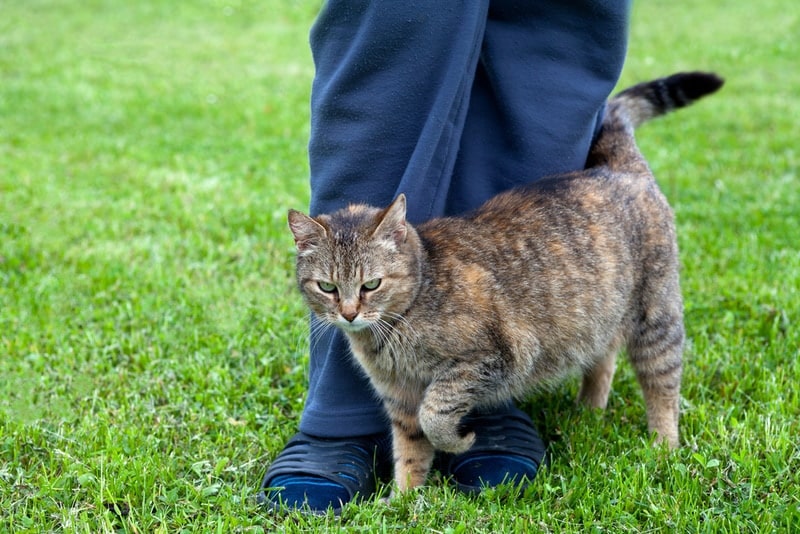It may feel impossible to comprehend, but the truth of the matter is that people who don’t like cats exist. While most people will keep their opinions to themselves, others may let it slip that they don’t like your cat, and it can be said in a disrespectful way.
While it’s unfair to force others to like cats, it’s also unfair for you and your cat to be insulted just for existing. You can go about addressing these types of insults in several ways, and it’ll depend on the severity of the situation.
It can be difficult to think of what to do in the heat of the moment. So, here are some helpful tips that can prepare you for the next time someone insults your cat.
What to Do When Someone Insults You and Your Cat
1. Ask Politely, “Why?”
If someone insults your cat, you can politely ask why they would say such a thing. People can dislike cats for a variety of reasons. Some may have cat allergies, while others may have had a negative past experience with a cat. It’s also possible that your cat may have done something to this person that bothered them.
Knowing the reason behind the insult will give invaluable insight into how to address the insult in a way that leads to effective conflict resolution. So, it doesn’t hurt at all to simply ask the person to explain why they insulted your cat. Just make it clear that you’re coming from a place of wanting to understand the other person better.

2. Let Them Know How Their Insult Made You Feel
It’s important to let the other person know how the insult made you feel. People who don’t like cats won’t really think about your cat’s feelings and may even find it strange if you say that their words hurt your cat. After all, your cat literally didn’t understand what they said.
Therefore, expressing how an insult to your cat is hurtful or offensive to you can let the other person know how their comment affected you. This type of communication is more likely to lead them to refrain from insulting your cat again.
3. Come to an Agreement
Once you and the other person have come to a place of mutual understanding, you can come up with an agreement that will prevent a similar incident from happening again. For example, if the person generally doesn’t like cats, you can agree to reduce the time you spend talking about your cat with them as long as they don’t make mean comments about your cat.
4. Don’t Make Others Apologize to Your Cat
Fortunately, your cat won’t really understand that they’ve been insulted and will walk away from the encounter unaffected unless the person has angered or scared them. People who dislike cats will most likely find it ridiculous to apologize to a cat and won’t comply with the request. It’s much more effective to let the offender know how their comment made you feel and ask them not to say offensive things about your cat for your sake.
5. You Can Always Walk Away
If the person who insulted your cat isn’t cooperative or makes insults repeatedly, you can choose to walk away from them. Explaining yourself or demanding an apology can end up just exhausting you and making the situation worse.
You can do your due diligence by clearly expressing how the insult made you feel and how you want to resolve this conflict. However, some people just may not be open to it. It’s often better to walk away from these situations, especially if they’re getting heated and you need some space.

Conclusion
It’s hurtful when someone insults your cat, and many people may not understand how important your cat is to you. It can be helpful to allow both sides to share how they feel and come up with an agreement that prevents your cat from getting insulted again.
Fortunately, there are many cat lovers all over the world. Friendships between two cat lovers are special and filled with plenty of compliments, love, and affection for each other’s cats. So, make sure to surround yourself with other cat lovers who share similar interests with you.
Featured Image Credit: silverblackstock, Shutterstock










